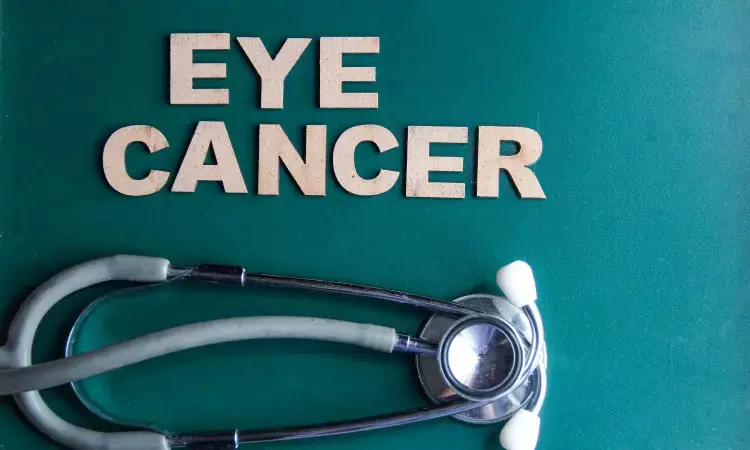- Home
- Medical news & Guidelines
- Anesthesiology
- Cardiology and CTVS
- Critical Care
- Dentistry
- Dermatology
- Diabetes and Endocrinology
- ENT
- Gastroenterology
- Medicine
- Nephrology
- Neurology
- Obstretics-Gynaecology
- Oncology
- Ophthalmology
- Orthopaedics
- Pediatrics-Neonatology
- Psychiatry
- Pulmonology
- Radiology
- Surgery
- Urology
- Laboratory Medicine
- Diet
- Nursing
- Paramedical
- Physiotherapy
- Health news
- Fact Check
- Bone Health Fact Check
- Brain Health Fact Check
- Cancer Related Fact Check
- Child Care Fact Check
- Dental and oral health fact check
- Diabetes and metabolic health fact check
- Diet and Nutrition Fact Check
- Eye and ENT Care Fact Check
- Fitness fact check
- Gut health fact check
- Heart health fact check
- Kidney health fact check
- Medical education fact check
- Men's health fact check
- Respiratory fact check
- Skin and hair care fact check
- Vaccine and Immunization fact check
- Women's health fact check
- AYUSH
- State News
- Andaman and Nicobar Islands
- Andhra Pradesh
- Arunachal Pradesh
- Assam
- Bihar
- Chandigarh
- Chattisgarh
- Dadra and Nagar Haveli
- Daman and Diu
- Delhi
- Goa
- Gujarat
- Haryana
- Himachal Pradesh
- Jammu & Kashmir
- Jharkhand
- Karnataka
- Kerala
- Ladakh
- Lakshadweep
- Madhya Pradesh
- Maharashtra
- Manipur
- Meghalaya
- Mizoram
- Nagaland
- Odisha
- Puducherry
- Punjab
- Rajasthan
- Sikkim
- Tamil Nadu
- Telangana
- Tripura
- Uttar Pradesh
- Uttrakhand
- West Bengal
- Medical Education
- Industry
New drug delivery system effective against rare eye cancer, finds study

A multi-institutional study led by Moffitt Cancer Center found that percutaneous hepatic perfusion using a melphalan hepatic delivery system may help patients with a rare eye cancer that has spread to their liver. This disease, known as metastatic uveal melanoma, is traditionally very hard to treat and usually has poor outcomes.
The phase 3 FOCUS trial, published in the Annals of Surgical Oncology, compared two treatments for metastatic uveal melanoma. One group of patients received the melphalan hepatic delivery system treatment, while the other group received standard of care treatment. Patients treated with the melphalan hepatic delivery system experienced significantly improved outcomes than those receiving alternative care. The median progression-free survival for these patients was 9.1 months, compared with 3.3 months for those on standard treatments.
The objective response rate was 27.5%, nearly three times the 9.4% observed in the comparison group. The disease control rate also substantially increased from 46.9% to 80.0%. Patients treated with the melphalan hepatic delivery system lived a median of 18.5 months, compared with 14.5 months for those receiving other forms of care. Although there were some side effects, mostly related to blood cell counts, these were treated with standard care as an outpatient and mostly resolved with observation alone.
“This new treatment gives hope to patients with this historically tough-to-treat cancer,” said Jonathan Zager, M.D., surgical oncologist in the Cutaneous Oncology Department at Moffitt and lead author of the study. “This is the second publication in Annals of Surgical Oncology on the results of the FOCUS trial and definitely shows that treatment with the melphalan hepatic delivery system can help control the cancer in the liver. The treatment provides an option that does not interfere with their quality of life and gives patients a chance at longer survival.”
The melphalan hepatic delivery system treatment was approved by the U.S. Food and Drug Administration in August 2023 based on the phase 3 trial results. Unlike regular chemotherapy, this treatment delivers a high dose of the drug directly into the liver, which is isolated with a series of catheters and balloons via percutaneous insertions. The chemotherapy is filtered out before it gets introduced to the rest of the body. This targeted approach helps reduce harmful side effects in the rest of the body. More research is planned to test the benefits of the melphalan hepatic delivery system. Studies will also look at combining this treatment with other new therapies.
Reference:
Zager, J.S., Orloff, M., Ferrucci, P.F. et al. An Open-label, Randomized Study of Melphalan/Hepatic Delivery System Versus Best Alternative Care in Patients with Unresectable Metastatic Uveal Melanoma. Ann Surg Oncol (2025). https://doi.org/10.1245/s10434-025-17231-x
Dr Kamal Kant Kohli-MBBS, DTCD- a chest specialist with more than 30 years of practice and a flair for writing clinical articles, Dr Kamal Kant Kohli joined Medical Dialogues as a Chief Editor of Medical News. Besides writing articles, as an editor, he proofreads and verifies all the medical content published on Medical Dialogues including those coming from journals, studies,medical conferences,guidelines etc. Email: drkohli@medicaldialogues.in. Contact no. 011-43720751


